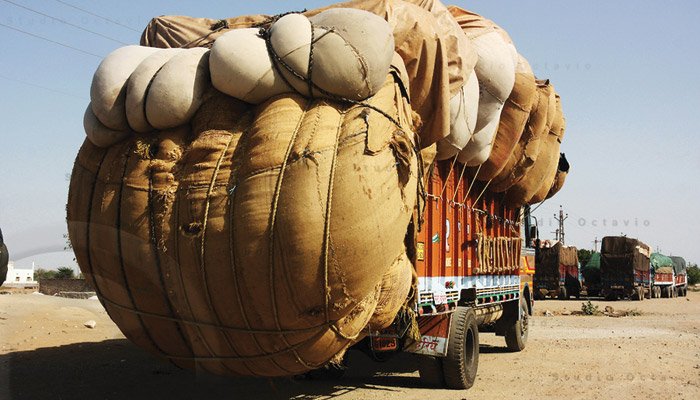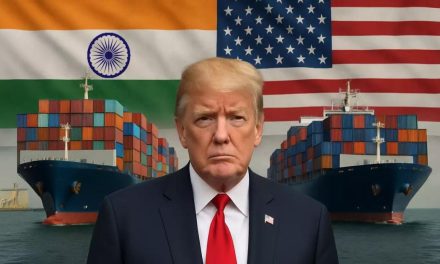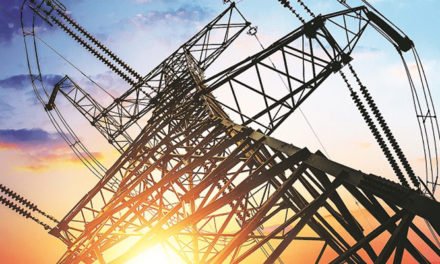India is the second largest textile manufacturing and exporting country in the world next only to China has been facing challenges on the logistics cost front, especially transport of cotton from cotton growing States to cotton consuming States. The steep increase in diesel price has increased the lorry transportation cost.
Though India is the largest cotton producing country and net exporter of cotton in the world, the domestic cotton textile industry could not derive competitive advantage due to the steep increase in cotton transportation cost. At the same time, countries like China and Vietnam could transport the cotton at a much cheaper cost in the international cotton trade. The average cotton transportation cost between Gujarat and China is far less than $200 for a 40-foot container having a capacity of 170 cotton bales each weighing 170 kg. (i.e., less than Rs. 100 per bale.
During the peak cotton season the lorry freight per bale between Gujarat ginning factory (the largest cotton producing State in the country) and spinning mills in Tamil Nadu (that account 47 per cent of the spinning capacity in the country and producing less than 5 per cent of its annual cotton requirement) was ruling upto Rs. 1,000 per bale. The transportation cost for imported cotton from countries in West Africa to the spinning mills in Tamil Nadu was ruling around Rs. 400 per bale.
Therefore, the industry opted for the cotton transport by rail and ship. But, the price difference between lorry and these modes of transport was less than 10 per cent. While competing countries are transporting cotton at a cheaper price, our cost is still high. Against this background, the cotton textile industry demanded relaxation of cabbotage rule for transporting cotton from ports in Gujarat to ports in Tamil Nadu and use foreign flag vessels to carry the cotton.
At the direction of PMO, the Ministry of Shipping and DG shipping immediately convened the stakeholders meeting, facilitated reduction of cost by exempting the fuel used by the Indian flag vessels from Central Excise Duty and also 40 per cent discount in the port handling charges. Since the Government did not exempted the fuel from Sales Tax and also the Indian flag vessels from Seafarer Tax, the cost remained high.
In addition, only one or two players extended the service during the last three years charging high rate. The cost difference worked out to 10 to 15 per cent less than the lorry transport. The lorry transport mode takes 3 to 4 days, while sea route takes around 15 days. Therefore, only larger mills could utilise this facility. Hence, the industry continued to demand for relaxation of cabbotage rule for cotton transport.






















